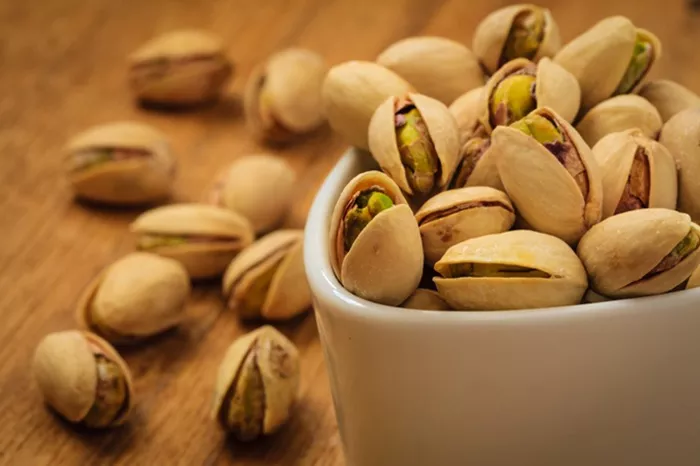A recent study conducted by researchers at the Friedman School of Nutrition Science and Policy at Tufts University has uncovered significant benefits of consuming pistachios daily for eye health. The research indicates that regular pistachio intake may enhance macular pigment optical density (MPOD), thanks to the presence of lutein—a plant pigment crucial for protecting the eyes against blue light and age-related damage.
The randomized controlled trial involved participants who incorporated 2 ounces (57 grams) of pistachios into their usual diet over a 12-week period. The results revealed that this addition led to a notable increase in MPOD among otherwise healthy middle-aged to older adults. MPOD serves as a vital marker of eye health, shielding the retina and correlating with a decreased risk of age-related macular degeneration (AMD), a leading cause of vision loss in older populations.
This study comes at a pivotal time, as a national poll by the American Foundation for the Blind indicated that Americans fear vision loss more than other serious health issues.
Key Findings:
Increased MPOD: Participants who consumed pistachios daily exhibited a significant rise in MPOD after just six weeks, with this enhancement maintained throughout the 12-week duration of the study.
Natural Source of Lutein: Pistachios are unique among nuts for providing a measurable source of lutein, an antioxidant known for its protective qualities for the eyes.
Potential for AMD Prevention: The study suggests that integrating pistachios into one’s diet could serve as a natural method for reducing the risk of developing AMD.
Lutein’s Unique Role in Eye Health
Lutein plays a crucial role in eye health by filtering blue light and acting as an antioxidant. The study highlighted that pistachio consumption nearly doubled the participants’ daily lutein intake, which tends to be low in typical American diets, and significantly increased plasma lutein levels.
Dr. Scott, one of the study’s researchers, explained that participants were chosen for having low habitual lutein intakes. Within just six weeks, the inclusion of 2 ounces of pistachios per day significantly boosted lutein levels in their blood. “By simply incorporating a handful of pistachios into your diet, you can enhance your lutein intake, which is essential for protecting your eyes,” Dr. Scott noted. She also mentioned that the healthy fats in pistachios may improve the absorption of lutein in the body.
The study determined that about 1.6 mg of lutein was provided from the pistachios consumed, which is sufficient to double the average daily lutein intake of U.S. adults, placing lutein in the category of xanthophylls—plant pigments beneficial for health.
Broader Health Benefits of Lutein
Beyond its advantages for eye health, the lutein found in pistachios may also enhance brain function. Dr. Elizabeth Johnson, a co-investigator on the study, explained, “Lutein crosses the blood-brain barrier, where it may help reduce oxidative stress and inflammation.”
Similar to its role in the eyes, lutein accumulates selectively in the brain, potentially aiding in the reduction of cognitive decline. Previous studies have indicated that higher lutein levels correlate with improved cognitive performance, including memory and processing speed, highlighting the value of pistachios as a beneficial addition to a diet focused on promoting healthy aging.
Related topic:
5 Best Home Remedies for White Bumps Under Eyes
What Are the disadvantages of laser eye surgery?

